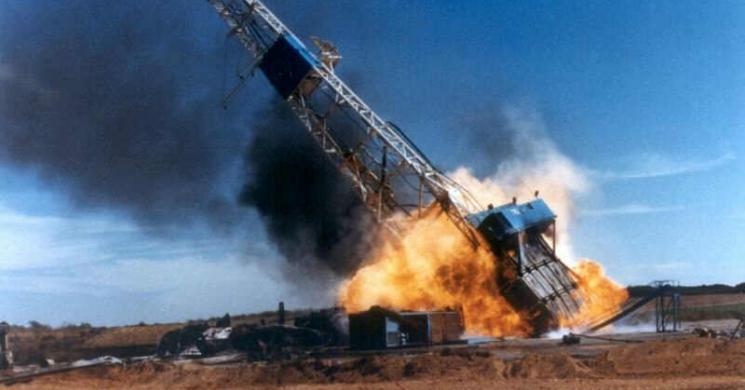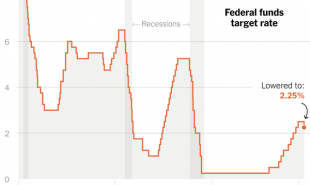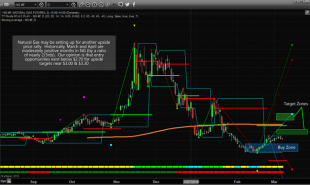
Energy Regulations Targeted Under Congressional Review Act
Via EBW Analytics
Summary
Congress has been using an obscure 1996 law—the Congressional Review Act (CRA)—to overturn Obama Administration regulations in some of the most controversial votes over the past few weeks.
Many targeted regulations concern the oil and gas industry. One action carried out under the CRA is the repeal of SEC rules requiring oil and gas companies to disclose payments made to foreign governments. All told, there are currently at least twenty-five CRA bills moving through the House and Senate.
There's a lot at stake for oil and gas industry players: a CRA resolution enjoys fast-track privileges, and wields a heavy—and irreversible—hand.
For immediate Congressional Review Act developments, follow @EyeOnCRA on Twitter.
www.EBWAnalytics.com | info@EBWAnalytics.com
Congress Begins Congressional Review Act Rollbacks of Energy & Environmental Regulations This Week
Authors: Sheila McCafferty Harvey, Andrew D. Weissman, Meghan Claire Hammond
2/1/2017
The House Rules Committee began meeting this week to discuss resolutions for overturning regulations passed under the Obama Administration. Within the GOP’s crosshairs are key energy and environmental regulations, including the Bureau of Land Management’s new methane restrictions related to the oil and gas industry, the Security and Exchange Commission’s requirement for reporting payments to foreign governments, the Department of Interior’s Stream Protection Rule requiring coal companies to restore mining lands back to their original state, and the Department of Energy’s efficiency requirements, among others. In total, including environmental regulations, there are hundreds of agency rules recently promulgated under the Obama Administration which Congress may seek to overturn. These roll-back efforts are being given a high priority.
To overturn these regulations, Congress will use its authority under the 1996 Congressional Review Act (CRA). The CRA establishes a “fast-track” procedure to overturn rules issued by federal agencies within the last 60 days of a legislative session.1 Public statements indicate that Republicans intend to roll back several regulations under the CRA, if not more. Further, judicial review of any “determination, finding, action, or omission” under the CRA is expressly barred.2 It is therefore essential that affected industries follow any actions taken under the CRA closely and consider further actions to promote their interests before Congress, whether those interests lie in retaining specific existing rules or overturning them.
Since enacted, the CRA has been successful only once, overturning a single ergonomics regulation in 2001. The reasons for not applying it are, in part, the practical need for one party to control both houses of Congress and the White House. Additionally two other factors of the Act should be considered:
- In its current form, the CRA requires a separate joint resolution of disapproval for each regulation; and
- More importantly, CRA also contains a provision assuring each party in the Senate at least 5 hours (10 hours total) to debate each resolution.3 This provision could be crippling for the GOP to finalize its agenda, particularly since much of the time the Senate has scheduled to be in session for the first few months of the year will be dedicated to Trump Administration appointments. To this point, Senate Minority Leader Chuck Schumer has indicated that Democrats intend to use the full power of procedural delays for appointments during that time.
Pictured: an oil rig in Texas blows up in 1977.
Dakota Pipeline, Frackers, and quid-pro-quo deals have nothing to worry about if Congress has its way.

In order to limit the amount of time for Senate debate, the House has already passed an amendment to the CRA—the Midnight Rules Relief Act—on January 4th by a vote of 238-184. The Midnight Rules Relief Act allows for agency regulations to be bundled under the CRA into one omnibus up or down vote by a simple majority. Its passage is a preliminary step to clear the deck for the broadest possible effort to invalidate recently promulgated regulations.4
A companion Midnight Rules Relief Act was introduced on January 5th in the Senate, where it will face tougher scrutiny from Democrats and a potential filibuster. Whether Senate Republicans will aggressively pursue the bill is unclear, as no actions have been taken since it was introduced. Much depends upon whether the Senate legislation is successful. If it is, major portions of the Obama regulatory agenda could be rolled back—potentially within the next few weeks. If not, in all likelihood only a few existing regulations will be affected due to the Senate debate time requirements of each rule under the CRA.
It is critical to monitor any regulations eligible to be overturned by a CRA, particularly because the Act provides that a rule may not be issued in “substantially the same form” as a disapproved rule unless it is specifically authorized by subsequent law. This language effectively bars an agency from ever reenacting similar regulations without specific authorization from Congress.
While the meaning of these express restrictions may potentially be litigated and debated for years, if interpreted broadly, they will serve to severely restrict the ability of regulatory agencies to take further action on the affected regulations in at least the next two to four years.
- The Congressional Research Service has calculated that the eligible date to place a rule within the CRA’s jurisdiction is June 13th, 2016. See Christopher M. Davis and Richard S. Beth, Congressional Research Services, Agency Final Rules Submitted on or After June 13, 2016, May Be Subject to Disapproval by the 115th Congress (Dec. 15, 2016), https://fas.org/sgp/crs/misc/IN10437.pdf.
- 5 U.S.C. § 805 (2016). Two federal appeals courts and several federal district courts have examined this section and determined that it unambiguously prohibits judicial review of any question arising under the CRA. Montanans for Multiple Use v. Barbouletos, 568 F.3d 225, 229 (D.C. Cir. 2009); Via Christi Reg’l Med. Ctr. v. Leavitt, 509 F.3d 1259, 1271 n.11 (10th Cir. 2007). See, e.g., United States v. Carlson, 2013 U.S. Dist. LEXIS 130893 (D. Minn. 2013); United States v. Ameren Mo., 2012 U.S. Dist. LEXIS 95065 (E.D. Mo. 2012); Forsyth Mem’l Hosp. v. Sebelius, 667 F. Supp. 2d 143, 150 (D.D.C. 2009); Provena Hosps. v. Sebelius, 662 F. Supp. 2d 140, 154–55 (D.D.C. 2009). One federal district court has reached a contrary conclusion, ruling that it could review a claim based on noncompliance with the CRA. United States v. S. Ind. Gas & Elec. Comp., 2002 U.S. Dist. LEXIS 20936 (S.D. Ind. 2002).
- The resolutions may not be filibustered. The Congress can make a non-debatable motion to limit the debate, however. 5 U.S.C. § 802 (d)(2).
- Additionally, the House passed the Regulations from the Executive in Need of Scrutiny (REINS) Act on January 5th by a vote of 237-187. This bill requires Agency rules with more than $100 million in economic impact to be approved by both the House and the Senate before taking effect.
Read more by Soren K.Group








